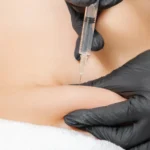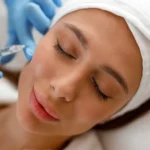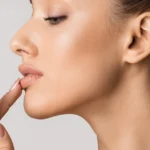THE WHAT? Kohl’s Corp. reported dismal first-quarter results, missing expectations across the board and leading to a drastic cut in its full-year guidance. Comparable sales dropped 4.4%, far worse than the 1.7% decline analysts anticipated. Despite offering deep discounts, the retailer saw a decline in clearance item sales, exacerbating its sales woes.
THE DETAILS Kohl’s stock plummeted as much as 27% in New York trading, marking the company’s largest single-day drop on record. The retailer’s CEO, Tom Kingsbury, attributed the poor performance to economic pressures on middle-income customers, including high interest rates and inflation. This segment’s spending has been notably impacted despite stable spending among higher-income shoppers.
The company’s strategic partnerships, including the notable tie-up with Sephora, showed strong traffic growth. However, this did not translate into broader sales gains outside store-in-store locations. Kingsbury, who became CEO in February 2023, acknowledged that the results fell short of expectations and did not reflect the company’s strategic direction.
THE WHY? Kohl’s struggles highlight the broader trend of inflation-weary consumers seeking value and being selective about their purchases. Despite efforts to attract customers through deep discounts and brand partnerships, the retailer has faced significant challenges. The retail landscape remains competitive, with other companies like Foot Locker and Burlington Stores seeing varied success by catering to value-oriented and deal-focused shoppers. This underscores Kohl’s challenges in appealing to its core customer base amid ongoing economic pressures.
Clinical aesthetics products refer to a category of products used in the field of medical aesthetics or cosmetic dermatology. These products are typically designed and formulated to be used under the supervision of healthcare professionals, such as dermatologists, plastic surgeons, or trained aestheticians. They are distinct from over-the-counter cosmetics in that they often contain active ingredients or formulations that require expertise in their application or administration.
Examples of clinical aesthetics products include:
-
Dermal Fillers: Injectable substances used to add volume, smooth wrinkles, and enhance facial contours. Examples include hyaluronic acid fillers like Juvederm and Restylane.
-
Botulinum Toxin (Botox): Injectables that temporarily paralyze facial muscles to reduce the appearance of wrinkles caused by repetitive movements, such as frown lines and crow's feet.
-
Chemical Peels: Solutions applied to the skin to exfoliate and improve its texture. They can treat acne, pigmentation issues, and signs of aging.
-
Laser and Light Therapies: Devices that emit focused light or laser energy to treat various skin conditions, including acne, scars, and signs of aging.
-
Prescription Skincare Products: Formulations containing active ingredients like retinoids (vitamin A derivatives), hydroquinone, or prescription-strength antioxidants to address specific skin concerns under medical supervision.






